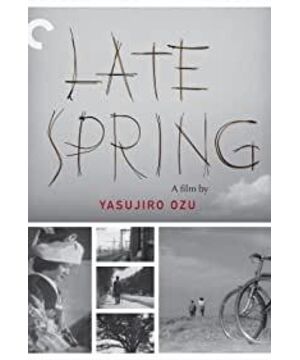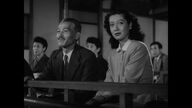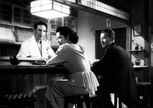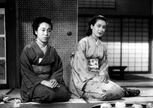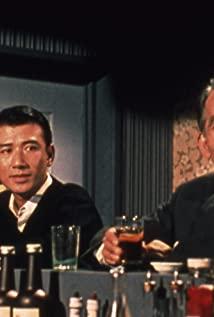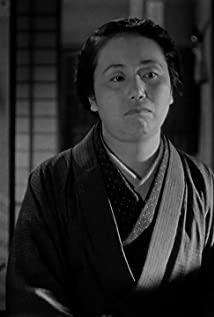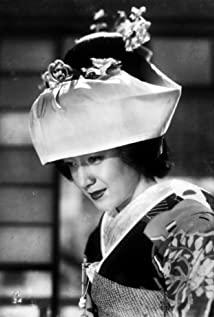After reading it, discuss tragedy and comedy with your friends. I suddenly asked her if this drama was a tragedy or a joy, she said it was a tragedy, I thought it was a tragicomedy. There is no absolute sadness and no absolute joy. When you are happy, you will feel regret in your heart, and when you are sad, there will be a trace of relief. When they are happy, just like Hara Setsuko and Hattori actually love each other. When the two are riding bicycles, Hara Setsuko's overflowing smile reveals her love, and so does Hattori's gentle smile. But for the sake of his father and for the moral hurdle, Setsuko Hara gave up, and the seat next to Hattori, who hoped to share the music, would be empty forever. Therefore, the happiness of Noriko and her father together can not help but say that there is a trace of regret that the love has failed. When sad, the father sends his daughter away, like peeling off the skin of an apple, it is the separation of flesh and blood. But it is selfish to keep her daughter by her side. After a few years, her daughter is alone. When the daughter left, in fact, the selfish desires in the father's heart were cleaned up, which must be said to be a correct choice. I was surprised that everyone laughed when they saw it. I thought few people would find it interesting to live. I think Ozu doesn't want to write tragedies, and there's no such thing as joy or sorrow. He just lightly uses the subtle entanglement in the character's heart to express a kind of emotional disappointment, and the impermanence of life, and then there are joys and sorrows.
View more about Late Spring reviews


